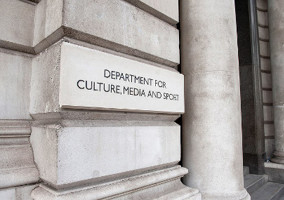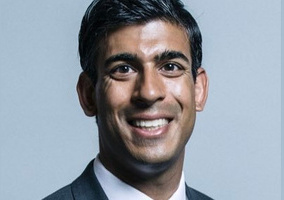Charities with more data “find it easier to unlock government money”, the minister for civil society said yesterday.
Baroness Barran also defended the government from criticism over the amount of data demanded from charities applying for grants.
Speaking at the NPC Ignites conference, Baroness Diana Barran said that government and charities both have a “moral responsibility” to collect and share data as part of spending public funds.
At the same event, NPC chief executive Dan Corry called on the government not to “neglect” charities as it plans the country’s recovery from the coronavirus pandemic.
Data and transparency
Answering questions at the conference, Barran was asked by one attendee: “Why should charities share data about their finances when government shares almost no information?”
The minister said that she has argued inside government for Whitehall to become better at sharing information on its grants, including using the 360 Giving database.
She said: “At the most extreme end, if you want some money from government then there is some transparency which is important.
“But I think, more widely, we all have a moral responsibility to try and help ensure that money goes to the places which need it and where the highest impact will be.
“And without greater transparency it is really quite hard to know that, so it would be nice to have some objective information to help inform those choices.”
She added that bits of the sector which have more data “find it easier to unlock government money”.
Small charity emergency funding ‘nearly all out’
The minister also said that £200m in emergency funding that was promised to small and medium-sized charities in April and distributed through the National Lottery Community Fund (NLCF), “is nearly all out now”.
However, she could not confirm that every grant will have reached charities by the end of this month, by which time more than seven months will have passed since the support was first announced.
Barran said: “We are absolutely confident that we will commit all of the money, and the lottery is working as hard as it can to get the money out the door.”
Confusion over match funding
She also discussed another part of the government support package, through which the Department for Digital, Culture, Media and Sport had distributed just under £85m directly to foundations in a match-funding scheme.
Barran told the audience: “We had £85m that would be match funded and, in true government style, this had to be done very quickly.
“But actually we were several times oversubscribed for that with philanthropists and foundations supporting it."
DCMS previously indicated that foundations applied for around £170m in match-funding, twice the money available. Civil Society News has asked the department for clarification.
DCMS response to Kruger could be delayed until next year
The minister also provided an update on the independent report into the future of charities that was commissioned by the prime minister and published last month by Danny Kruger MP.
She revealed that there may not be a formal government response until 2021.
Barran said: “I met with Danny last week, so it is now handed over to us in the department to take it forward.
“My secretary of state will also make a fuller response to Danny’s report later this year or early next year.”
She said she will continue to meet with Kruger regularly to discuss the report and its recommendations.
Not enough love
Introducing the conference earlier in the day, NPC chief executive Dan Corry said that the government still struggles to understand the role of charities in society.
He said: “We have a sector that is not understood by government. The policy world gets excited when they think we can produce lorryloads of free volunteers, but that is usually as far as the love goes.
“Yes, they gave a package of support a few months ago, quite substantial in fact. But as our analysis made clear, it was targeted supported to meet some of their needs, and never a general bailout.
“But to neglect the charity sector is a mistake. Our sector really is in trouble, and that matters to all of us.”
Corry added later: “The government is thinking more about charities [than before the crisis], but still does not understand the sector.”
A role for ‘do-gooders’
He also warned that charities will need to plan for the impacts of the pandemic long into the future.
Corry said: “The new normal is really the perilous present. A long-lasting crisis in which disaster is never far away.
“Reacting and rebuilding must happen together, and the challenge of rebuilding will be very large.”
He added: “The sometimes-maligned ‘do-gooders’ who make up civil society will be at the heart of it.”
Related articles












